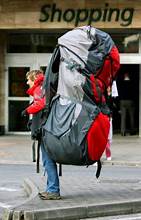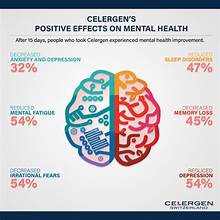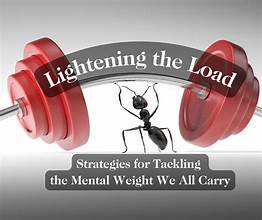Like an Overstuffed Backpack NYT: Understanding the Weight of Our Daily Lives

In today’s fast-paced world, it often feels like we’re carrying more than we can bear. The pressures of daily life—work, family, social obligations, and personal goals—can be overwhelming. Much like an overstuffed backpack, these responsibilities and demands accumulate until they begin to weigh us down. This article explores how the concept of like an overstuffed backpack NYT captures the essence of modern life and its impact on our mental, emotional, and physical well-being.
Table of Contents
The Metaphor of an Overstuffed Backpack
An overstuffed backpack is a familiar image to many, especially students and commuters. It represents the physical strain of carrying more than we’re meant to handle. But what happens when this metaphor is applied to our daily lives, where the weight we carry is not just books and gadgets but a combination of responsibilities, expectations, and emotional burdens?
In the New York Times, the metaphor of like an overstuffed backpack NYT has been used to describe the overwhelming nature of contemporary life. The image suggests that just as a backpack bursting at the seams can be difficult to carry, our lives can become burdensome when we try to fit too much into them. This section of the article will delve into the societal and psychological implications of feeling overburdened and how we can identify and address it.
The Burden of Multitasking
One key reason why our lives often feel like like an overstuffed backpack NYT is the pressure to multitask. In the modern world, we’re expected to juggle many tasks simultaneously, from answering emails while attending meetings to managing home responsibilities while working remotely. The expectation to perform several roles at once creates mental and emotional strain, much like how an overstuffed backpack can cause physical discomfort.
Studies have shown that multitasking can reduce our efficiency and increase stress levels. The more tasks we try to handle at once, the more we feel like we are carrying an unmanageable load. This constant pressure to keep up with everything can lead to burnout, anxiety, and a sense of helplessness, making it all the more important to identify when our mental backpacks are overstuffed.
The Impact on Mental Health

When life begins to feel like like an overstuffed backpack NYT, our mental health can suffer. The accumulation of stress from work, personal obligations, and societal expectations can have a significant impact on our emotional well-being. Anxiety, depression, and other mental health issues often arise when we attempt to carry too much.
The psychological strain that comes with trying to manage a life full of competing priorities can feel suffocating. Just as a backpack overloaded with heavy items can cause discomfort and pain, our minds can become overwhelmed when we fail to prioritize or delegate tasks. This section will explore how mental health issues are linked to the metaphor of like an overstuffed backpack NYT and the ways in which we can address these challenges.
Physical Consequences of an Overloaded Life
The metaphor of like an overstuffed backpack NYT isn’t just a mental image—it also has physical implications. Carrying a heavy load, whether in the form of emotional burdens or actual physical weight, can lead to long-term health problems. Similarly, when we overextend ourselves mentally and emotionally, our bodies often bear the brunt of the strain.
Research has shown that chronic stress can lead to physical issues such as headaches, insomnia, and even heart disease. When our emotional backpacks become too heavy, we may experience physical symptoms that reflect our internal struggles. This section will discuss the connection between mental overload and physical health, shedding light on how both are intertwined in the context of like an overstuffed backpack NYT.
The Role of Technology in Adding Weight
In the digital age, technology has become an indispensable tool that can both ease our workloads and add to the weight of our daily lives. From smartphones to email notifications, the constant stream of information and demands can contribute to the feeling of like an overstuffed backpack NYT. We’re always connected, always available, and always on the go.
While technology has its benefits, it also comes with a sense of pressure. The expectation to respond quickly, keep up with social media, and manage multiple digital platforms can feel like a never-ending load. This section will explore how our relationship with technology can contribute to the feeling of being overwhelmed, much like carrying an overstuffed backpack that never seems to get any lighter.
How Our Work Lives Contribute to Overload
In the professional world, the pressure to constantly perform and excel can contribute to the feeling of like an overstuffed backpack NYT. Long hours, tight deadlines, and high expectations can leave us feeling drained and unfulfilled. The desire to climb the career ladder, combined with the pressure to maintain a work-life balance, can create an environment where we are juggling too many things at once.
The idea of “work hard, play hard” is often celebrated in today’s culture, but it can lead to burnout if we don’t find ways to manage our workload effectively. This section will discuss how the demands of the modern workplace contribute to the metaphor of like an overstuffed backpack NYT and what strategies can help us cope.
Strategies for Lightening the Load

While the feeling of being overburdened is common, it’s important to recognize that we don’t have to carry this weight alone. There are several strategies that can help us lighten our metaphorical backpacks and regain a sense of balance. By implementing healthy habits, setting boundaries, and practicing mindfulness, we can begin to reduce the strain of our daily lives.
One effective approach is time management. By prioritizing tasks, breaking them down into smaller, more manageable chunks, and delegating responsibilities where possible, we can alleviate some of the pressure. Similarly, learning to say no and establishing clear boundaries with both work and personal obligations can help prevent our backpacks from becoming overloaded.
Another strategy is self-care. Whether it’s taking regular breaks, engaging in physical activity, or simply resting, prioritizing our well-being is essential for maintaining a healthy balance. This section will explore these strategies in greater detail, providing actionable steps for lightening the load of like an overstuffed backpack NYT.
Finding Support: The Importance of Social Connections
In the face of overwhelming pressures, it’s crucial to remember that we don’t have to carry the weight alone. Social connections, whether with friends, family, or colleagues, can provide invaluable support. Sharing our burdens with others can help us feel understood and less isolated in our struggles.
Community plays a vital role in alleviating the pressures of daily life. Just as a backpack can be shared or redistributed among several people, our emotional and mental burdens can be lightened by the support of others. This section will discuss the importance of building a strong support network and how it can help us navigate the challenges that contribute to like an overstuffed backpack NYT.
Creating Balance: The Key to Avoiding Overload
Ultimately, the goal is to find a balance that allows us to carry our responsibilities without feeling like we’re drowning under the weight of them. Balance doesn’t mean eliminating all stress or expectations, but rather managing them in a way that is sustainable and healthy. This is a continuous process that requires self-awareness, adaptability, and a commitment to prioritizing our well-being.
By recognizing when our backpacks are becoming overstuffed and taking proactive steps to address the overload, we can create a more balanced and fulfilling life. This section will explore how creating balance can help us avoid the feeling of like an overstuffed backpack NYT and maintain our mental, emotional, and physical health.
Also read Thespark Shop Flower Style Casual Men Shirt: The Perfect Blend of Comfort and Style
Conclusion
The metaphor of like an overstuffed backpack NYT serves as a powerful reminder of the weight we carry in our daily lives. From the pressures of work and technology to the expectations of family and society, we are constantly adding more to our figurative backpacks. However, by recognizing the signs of overload and implementing strategies to lighten the load, we can create a life that feels more manageable and fulfilling.
The key is balance. By taking steps to prioritize our mental health, manage our responsibilities effectively, and seek support when needed, we can avoid the feeling of being overwhelmed. The metaphor of like an overstuffed backpack NYT may remain a reality for many, but with the right tools and mindset, we can navigate the challenges of modern life with greater ease and resilience.



